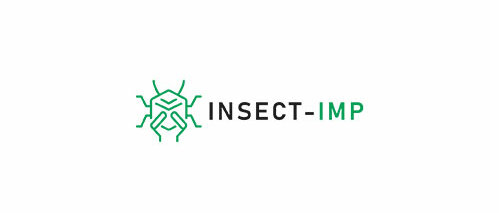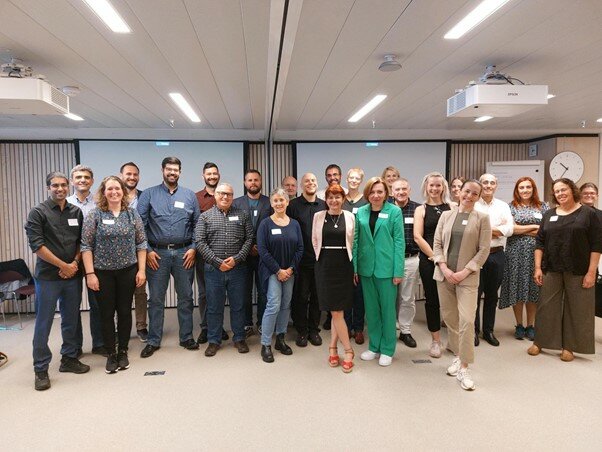Insect-IMP: New International Initiative for Advancing Insect Breeding and Genetic Improvement
The global population is expected to grow to 10 billion by 2050, increasing demand for food, specifically protein. Insect farming can significantly affect global food security by reducing environmental footprints and improving sustainability. However, it currently relies on insect populations whose genetics are poorly understood and not necessarily bred or fit for purpose. Understanding the genetics of large livestock species has made a big difference in advancing farming systems. Still, little effort has been put into breeding programs that would ensure the genetic improvement of insect species. With the continuous scale-up of insect farming systems, there is a rising need to coordinate research efforts in insect breeding and genetics.
To address this challenge, experts and professionals interested in sustainable insect breeding first met in September 2023 in Brussels to kickstart an interdisciplinary collaboration. The network forms the Insect-IMP Action funded by COST. COST Actions are collaborative research networks funded by the European Cooperation in Science and Technology (COST) program for addressing scientific, technological, or societal challenges. A fresh network for innovation, Insect-IMP aims to facilitate communication, collaboration, and knowledge transfer within and across insect species. Another goal of the COST Action is bridging the gap between academia and industry to advance the field of breeding and genetic improvement of insects.
The Insect-IMP Action seeks to address challenges faced by the growing insect farming industry, where genetic improvement needs to catch up with the rapid pace of industry expansion. Objectives of the Action include:
- Coordinating research efforts on genotyping and population structure.
- Understanding mating behaviors and improving mating control in insect species.
- Identifying the impact of community interactions on insect performance.
- Defining breeding goals for genetic improvement in insect species.
- Addressing challenges in phenotyping.
- Assessing and improving models for genetic and genomic evaluation.
There are eight dedicated Working Groups (WGs) to fulfill these objectives. These eight WGs have already started their online meetings to set standards and provide impulses for progress in the agriculture and food sectors. Apart from online meetings, there will be three in-person WG meetings throughout the year: one in Novi Sad (Serbia), the other in Celle (Germany), and the final one in Ljubljana (Slovenia). Furthermore, an industry workshop in May at the Insecta Conference and a thematic workshop later in the year are being planned, where interested parties can meet the Action community.
As of mid-February, more than 160 representatives of academic institutions and industry partners from 27 countries joined the Action. Currently, the industry is represented by around 15 companies from the sector. Insect-IMP invites potential stakeholders besides researchers and innovators—from insect farmers and insect breeding companies to livestock, poultry, and aquaculture industries that might utilize insects as feed—to participate in the Action and its upcoming events to:
- Share their expertise and insights to address challenges in the field.
- Collaborate with researchers working on diverse insect species.
- Contribute to the development of best-practice recommendations for insect breeding.
- Foster communication between academia and industry.
- Participate in workshops, training, and collaborative efforts.
Insect-IMP network encourages participation from individuals at all stages of their careers and from diverse backgrounds, creating an inclusive environment to support the field's growth. Insect farming is a young industry; unsurprisingly, almost half of the Insect-IMP members are younger than 40. Moreover, the Action will support young voices from Inclusiveness Target Countries as defined by COST. The four conference grants will reimburse travel, participation, accommodation, and subsistence costs. Moreover, the initiative will hold training schools during the next four years and fund short-term scientific missions for staff exchange.
For more information about Insect-IMP contact
- at DLG Prof. Dr. Nils Borchard, (N.Borchard@DLG.org ),
- Coordinator of Working Group 8: Inclusion and Representation - Dr. Mert Kükrer (mertkukrer@gmail.com)
- Action Chair - Dr. Gertje Petersen (Gertje.Petersen@laves.niedersachsen.de)
- or visit the initiative's webpage
Potential participants can use the link to apply for the working groups.


